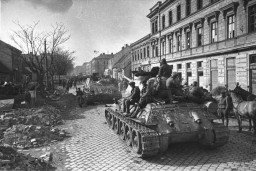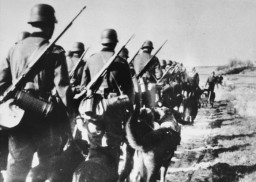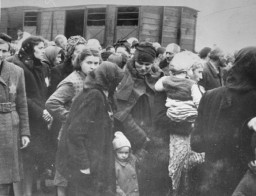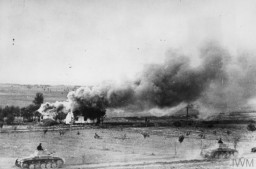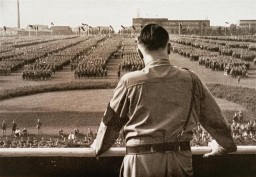We would like to thank Crown Family Philanthropies and the Abe and Ida Cooper Foundation for supporting the ongoing work to create content and resources for the Holocaust Encyclopedia. View the list of all donors.
![German forces enter Aachen, on the border with Belgium, following the remilitarization of the Rhineland. [LCID: 70032]](https://encyclopedia.ushmm.org/images/thumb/4d587734-0984-4f9f-9d7d-5e2b5e87dacc.jpg)
Artículo Destacado
Cronología de la Segunda Guerra Mundial
Explore la cronología de eventos clave que ocurrieron antes y durante la Segunda Guerra Mundial. El asesinato masivo de los judíos de Europa tuvo lugar en el contexto de la Segunda Guerra Mundial. A medida que las tropas alemanas invadían y ocupaban más y más territorio en Europa, en la Unión Soviética y en el norte de África, las políticas raciales y antisemitas del régimen se radicalizaron más y evolucionaron de la persecución al genocidio.
Navegar artículos populares
Explorar la enciclopedia
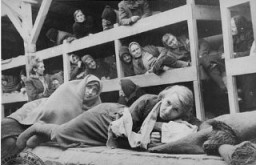
Historias personales
Explore las biografías en línea para aprender más acerca de las experiencias personales durante el Holocausto
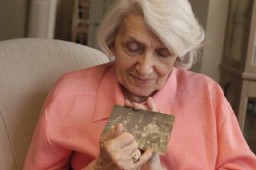
Fotografías
Navegar todas las fotografías
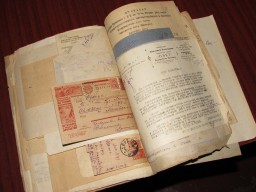
El Holocausto
Un sitio de aprendizaje para estudiantes

![German soldiers direct artillery against a pocket of resistance during the Warsaw ghetto uprising. [LCID: 34083b]](https://encyclopedia.ushmm.org/images/thumb/8ffe37b4-0b4f-4966-9e03-838766fb9e89.jpg)
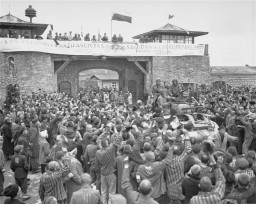
![Stretcher bearers carry a wounded soldier during the Battle of the Somme. [LCID: 2453747]](https://encyclopedia.ushmm.org/images/thumb/647ba4e2-8fc6-4340-9d0c-21dd535eaf42.jpg)
